Client
PetroKart Mobility Private Limited
Industry
Automotive & Mobility
Company Size
15+ employees
Website
petrokart.in
Location & Branches
Thiruvananthapuram, Ernakulam, Kottayam, Kozhikode, Thrissur, Chennai
eWayGO, developed by PetroKart Mobility Pvt. Ltd., is a private limited company based in Ernakulam, Kerala. Incorporated on May 27, 2024, the startup operates in the mobility and automotive sector with a strong emphasis on IoT and smart manufacturing technologies. The company offers electric scooter rentals aimed at both B2C and B2B users, helping cities reduce carbon emissions while improving last-mile connectivity.

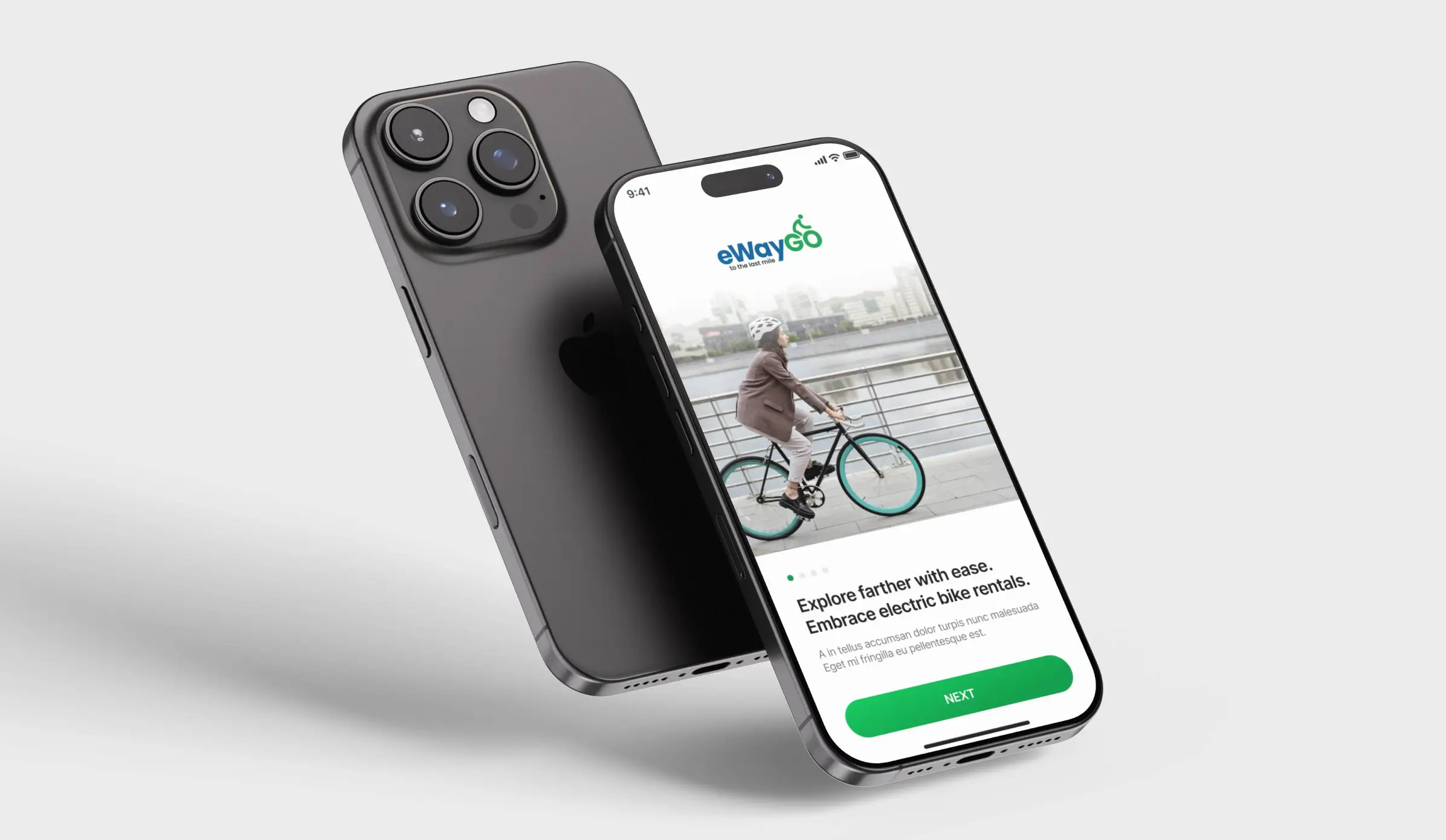
The primary goal of the eWayGO mobile app was to streamline the e-scooter rental experience for everyday users across Indian cities. The design challenge was to create an app that was easy to use, visually clean, and functionally efficient, even on low-end devices and slower mobile networks. The core objectives included enabling real-time scooter discovery, instant unlock features, and fast, secure payment flows, all while educating users about their environmental contributions.
The target audience included college students, young professionals, gig economy workers, and small businesses looking for short-distance, cost-effective transport options. These users value speed, convenience, affordability, and digital payment flexibility, and they expect a seamless mobile experience with minimal friction.
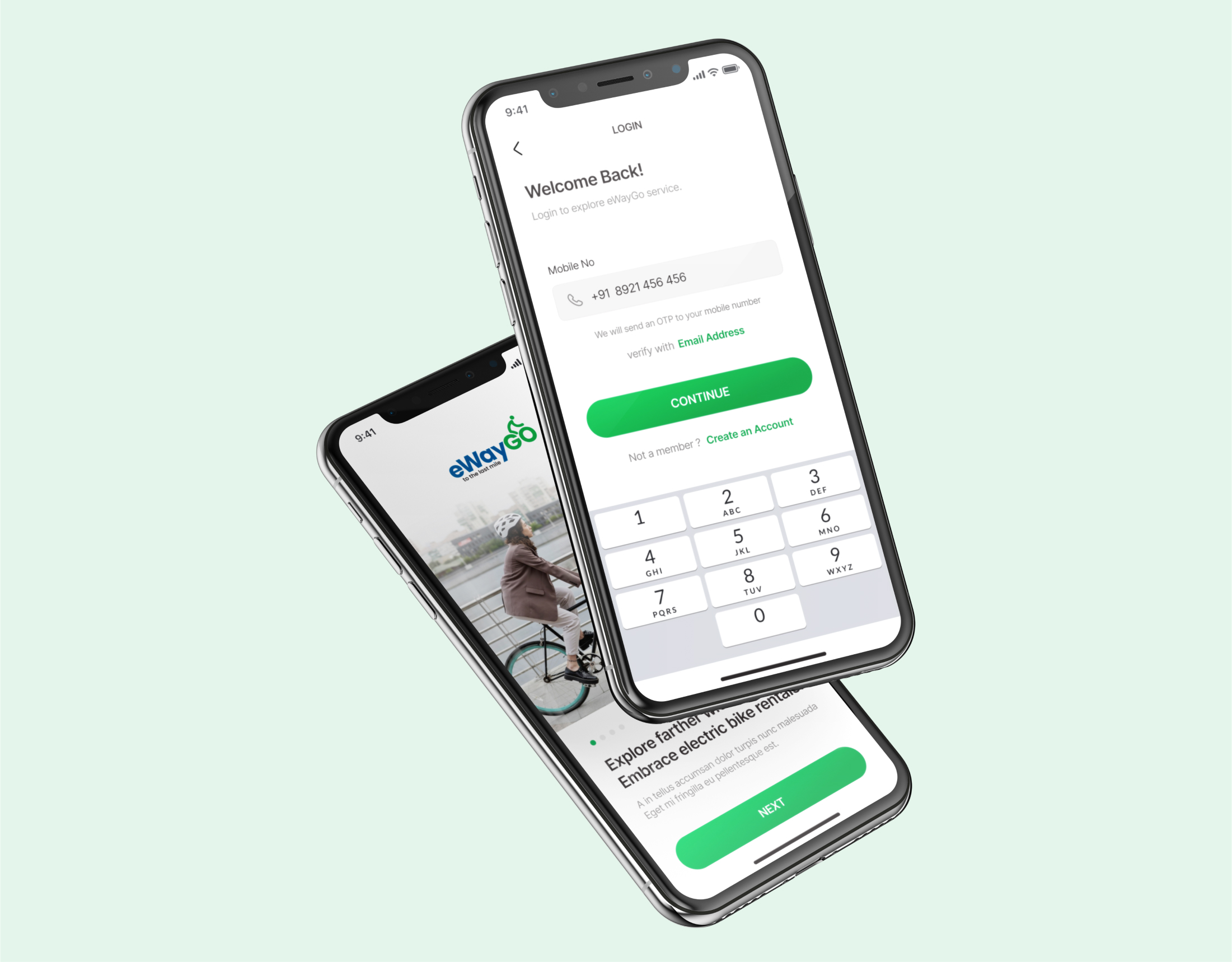
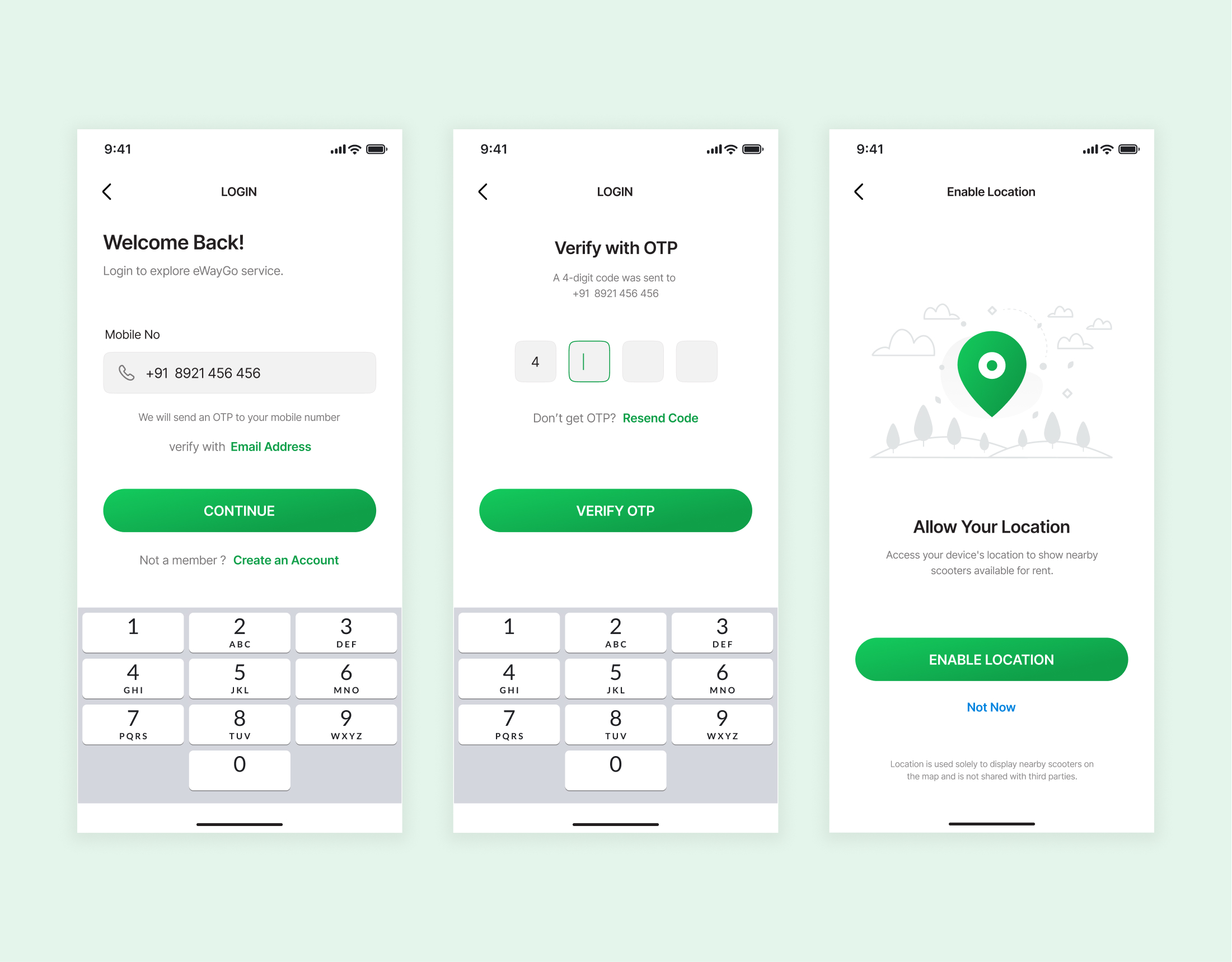
The research phase involved a mixed-method approach, combining qualitative interviews and quantitative surveys. Interviews were conducted with 15 users across Ernakulam and Kochi, including college students, delivery partners, and IT employees. They revealed that most users struggled with delayed scooter unlocking, poor battery visibility, and apps that didn’t clearly show legal parking areas.
Additionally, a digital survey was distributed and received over 120 responses. The findings showed that 88% of users preferred to see battery percentage before booking, 72% wanted a live map with scooter availability, and more than 80% favored UPI as their primary payment method. Users also expressed interest in seeing the environmental impact of their rides, such as CO₂ saved or calories burned, which significantly influenced retention and engagement.

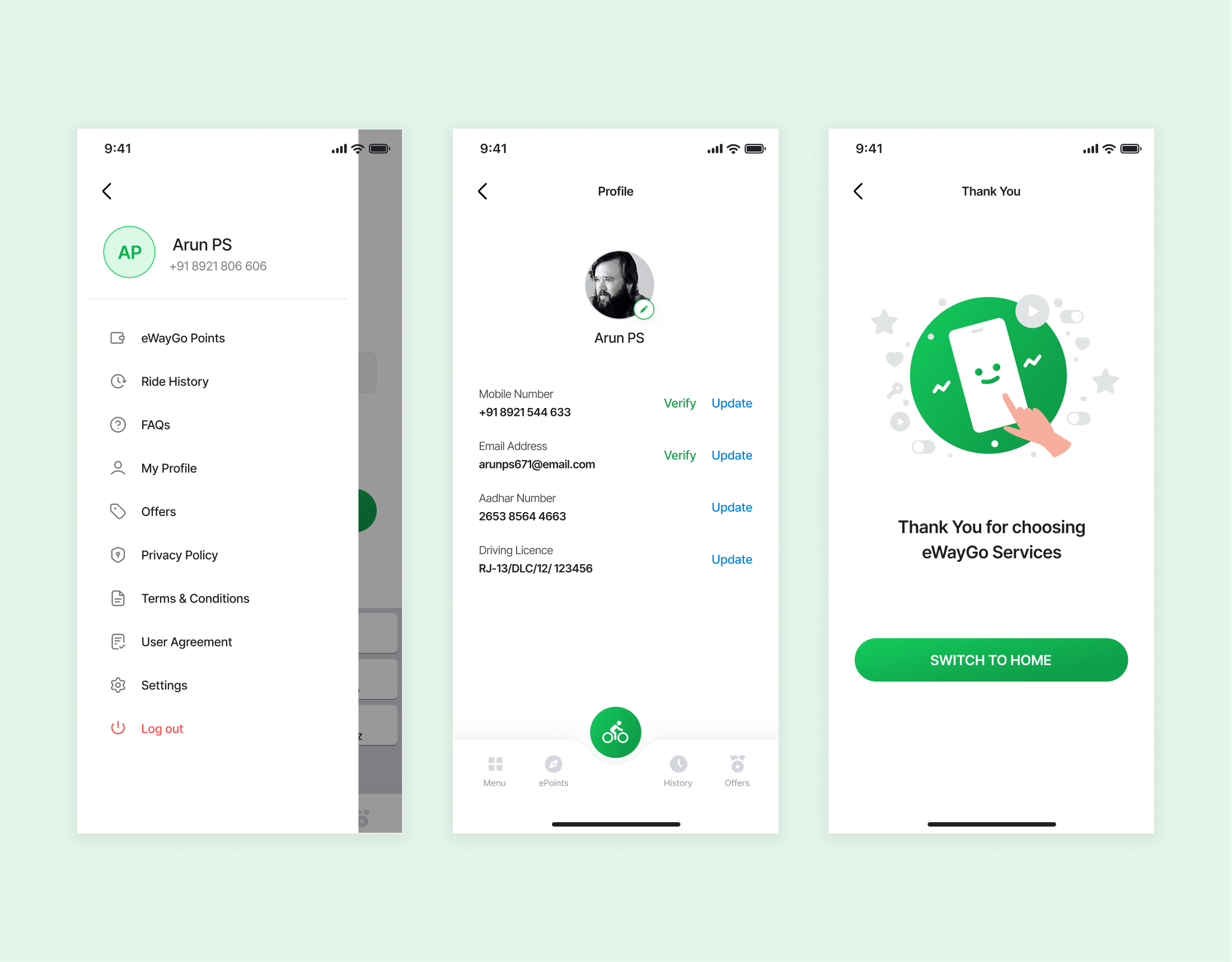
The design began with low-fidelity wireframes that were validated through user feedback sessions. These wireframes tested core functionalities like searching for scooters, unlocking, navigating during the ride, and ending the trip. Users responded positively to a clean, map-first interface and suggested simplifying the top-up wallet flow.
We moved to high-fidelity prototypes using Figma, where we integrated native UPI SDKs, animated ride summaries, and a persistent ride-status bar. To support low-end Android phones, we prioritized a lightweight design with on-device caching and minimal animation delays.
Our visual system was built around green, blue, and white to convey eco-friendliness, trust, and simplicity. Typography used the Inter font for maximum legibility, and icons were drawn in a minimal style to enhance clarity without adding visual noise.
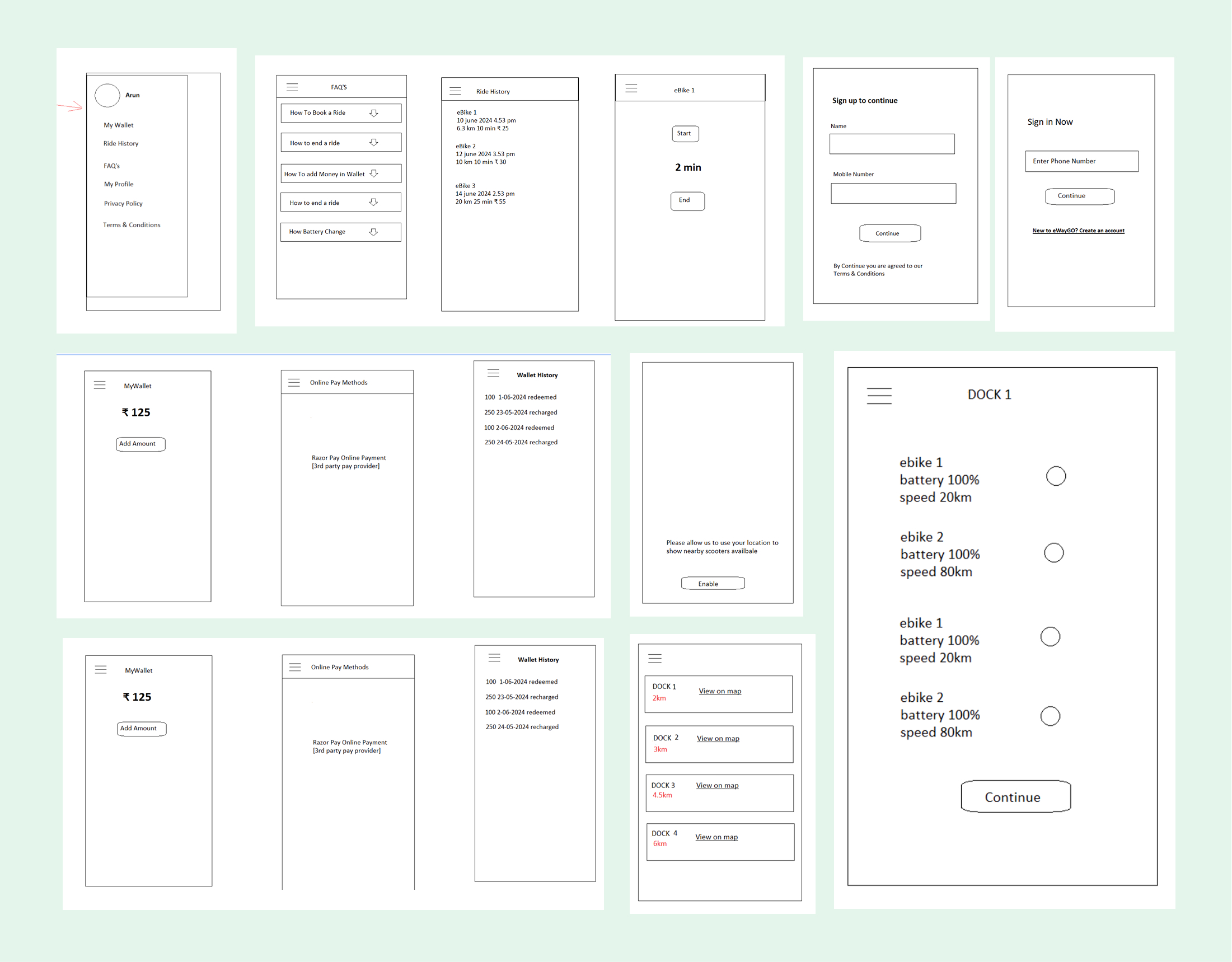

The final app experience was crafted around several standout features. Users could view a real-time map with nearby scooters, each tagged with battery level and walking distance. Smart Unlock was enabled through both QR code and NFC, with backup options in case of Bluetooth failure. The ride summary screen gave users insights into distance traveled, time taken, cost, and the amount of CO₂ they saved by using an electric scooter over a petrol alternative.
Payments were deeply integrated into the Indian ecosystem, allowing UPI (Google Pay, PhonePe, Paytm), card transactions, and a wallet system that offered cashbacks and credits. For B2B users, an invoicing module was introduced with ride summaries, GST breakdowns, and exportable logs.
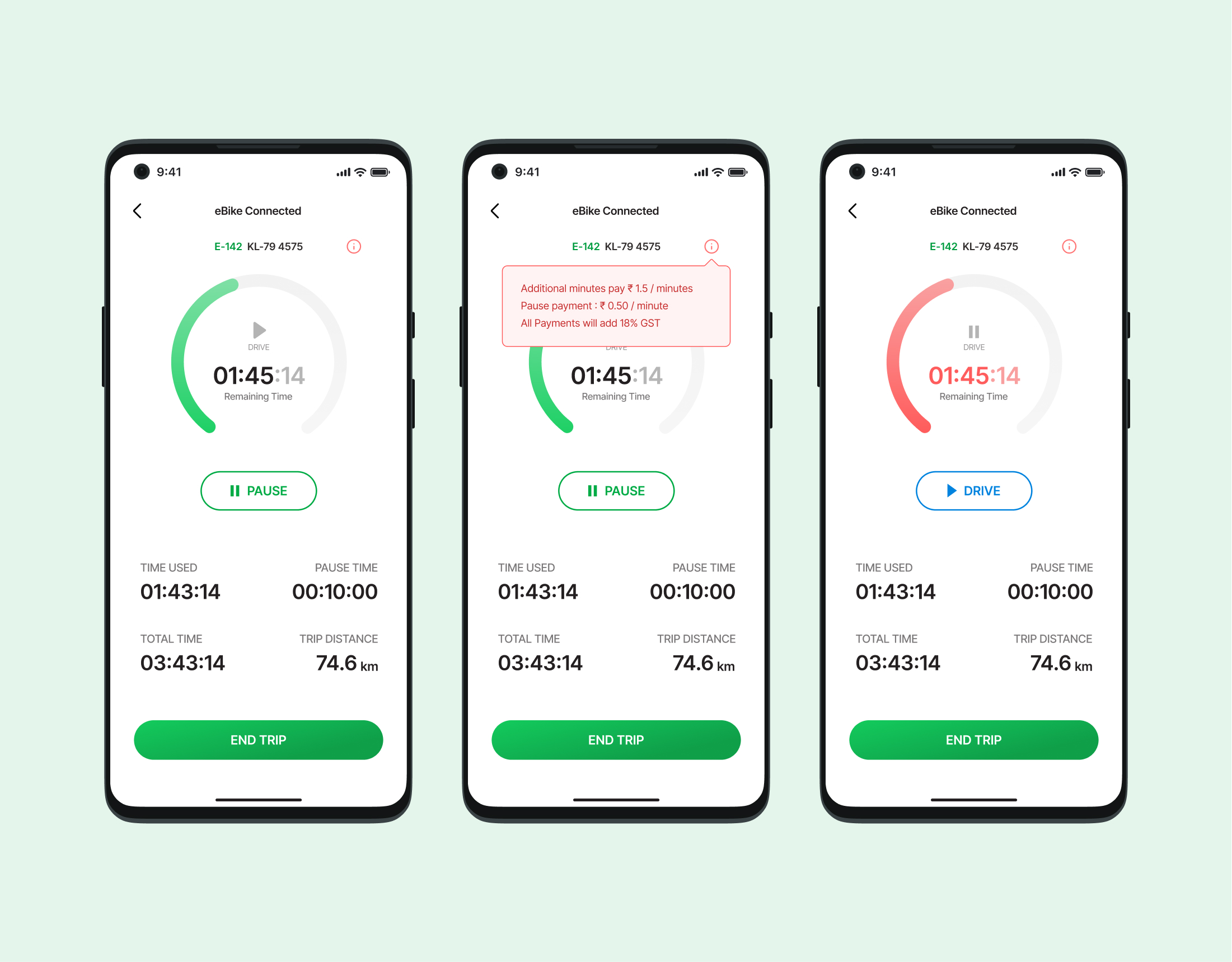

The UX case study of eWayGO demonstrates the power of design in shaping behavior, building brand trust, and driving real-world impact. More than just a scooter rental app, eWayGO is a statement of intent about the future of Indian mobility—one that is smarter, cleaner, and more inclusive. By rooting the design process in user behavior and local context, and by delivering a scalable, intuitive digital product, eWayGO is well-positioned to lead the electric mobility transformation in urban India.